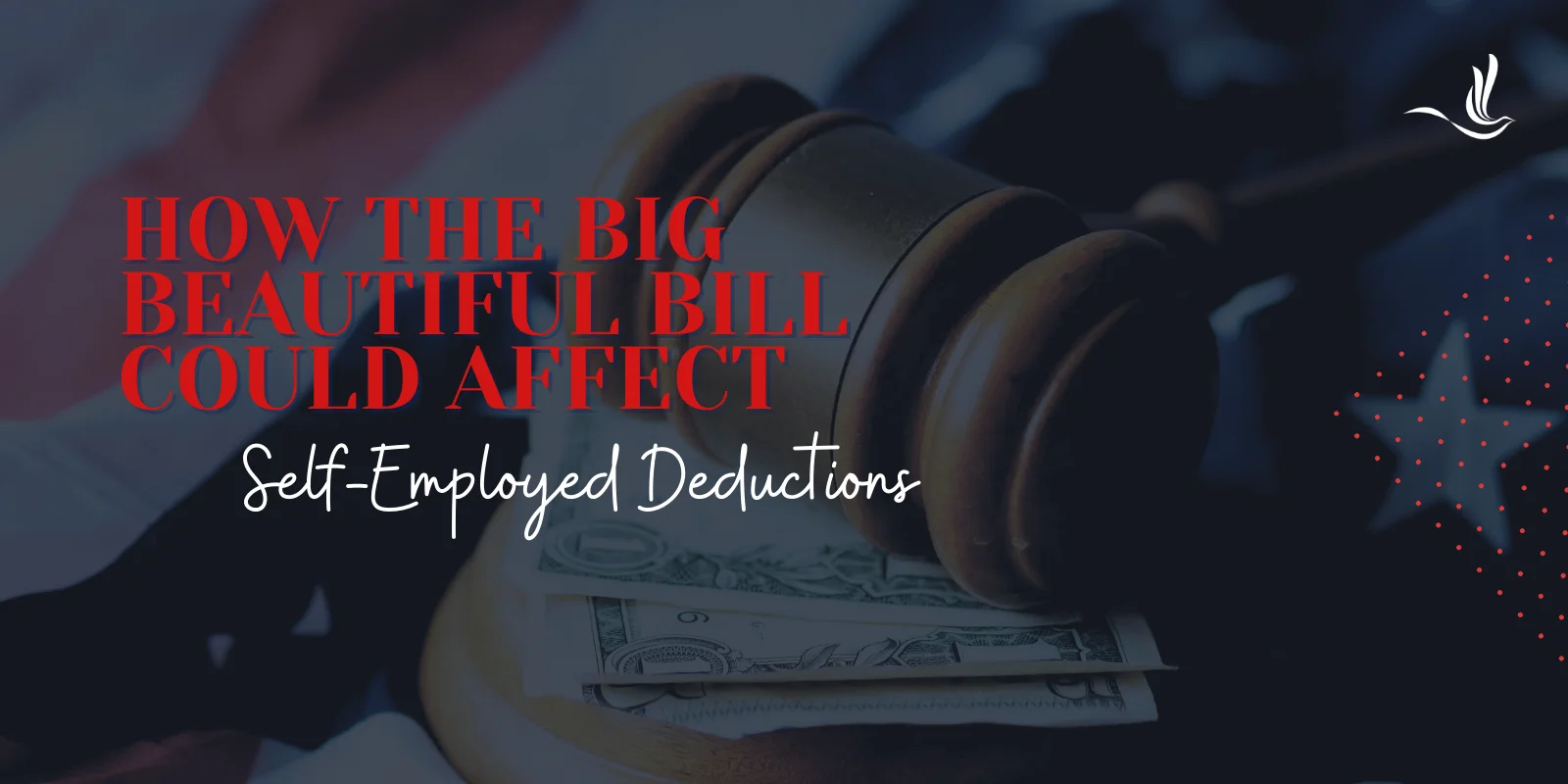Our income tax system uses a self-reporting process. Taxpayers, in most cases, voluntarily file income tax returns. The IRS can then evaluate the filings to determine whether they appear to be correct or warrant further investigation.
The IRS has developed a whole regime of forms to be used for this very purpose. Taxpayers who fill those out are, in theory, providing all of the information the IRS needs to evaluate whether the information reporte is correct.
The exception to this is for refund claims. Refund claims have a small box, consisting of a few lines, where taxpayers can write out an explanation for the basis of their refund claim. Despite only having a small box to write, the IRS takes the position that any theory not put forth in the small box means that the theory cannot be raised–at least that is the case when it comes to tax litigation.
So imagine that you filed a refund claim as you overpaid your taxes for a particular year and you want your money back. You do your best to fill out the small box that is provided for the “explanation.” Then after that, you discover additional facts that would have changed the text you put in the small box for the explanation. After bringing suit in tax court, the IRS moves to dismiss because the information that you did not know at the time you filled in this small box on the amended return was not listed in the small box.
This is the situation in the Salta v. United States, No. 24-254 (2d Cir. Oct. 6, 2025) case. The appeals court was tasked with deciding whether the information in the small box that was not known at the time had to be there for the litigation to proceed.
Facts & Procedural History
This case involves a common scenario–a foreclosure. In January 2015, the taxpayer-husband’s property in was in foreclosure. Rather than proceed through a lengthy foreclosure process, the taxpayer signed a deed-in-lieu-of-foreclosure arrangement. He transferred the deed to the mortgagee. In exchange, the mortgagee and loan servicer agreed to waive their rights to pursue a deficiency judgment against him.
On their 2015 joint tax return, the couple reported $113,087 in cancellation-of-indebtedness income from the discharge of the husband’s mortgage debt. They paid the tax on this income. Years later, they filed a refund claim to request a refund from the IRS because they believed the cancellation-of-indebtedness income should have been taxable in 2017 rather than 2015.
The IRS denied their refund request. Romeo and Phyllis then filed a refund suit in federal district court. The government moved for summary judgment. The taxpayers cross-moved for summary judgment. At this point in the tax litigation, they raised a new argument. The January 2015 Relocation Agreement was never enforceable because the mortgagee never signed the documents. Furthermore, the loan servicer lacked power of attorney to act on the mortgagee’s behalf.
The district court granted summary judgment for the government. The court found that the variance doctrine barred the taxpayers from raising their unenforceability argument because they had not presented this theory in their administrative refund claims. That resulted in the current court opinion.
When Debt Forgiveness Creates Taxable Income
The tax code treats income from discharge of indebtedness as taxable income under Section 61(a)(11). This provision makes sense as a matter of tax policy. When a lender forgives debt, the borrower experiences an increase in wealth. The borrower no longer has an obligation to repay money that was previously owed.
The timing of when this income must be recognized matters for income tax purposes given that our income tax system follows a strict year by year measurement process. Recognizing income in the wrong year can affect the applicable tax rates, impact the availability of deductions and credits, etc. It can also affect the statute of limitations for assessment. Getting the year wrong means paying tax when you shouldn’t have to. Then you face the burden of fighting to get that money back.
The court have explained that debt discharge creates taxable income in the year the discharge occurs. But determining exactly when a debt is “discharged” for tax purposes isn’t always straightforward.
The general rule is that debt is viewed as having been discharged the moment it becomes clear that tbe debt will never have to be paid. Any identifiable event which fixes the certainty of the discharge may be taken into consideration. This standard focuses on certainty and identifiable events. A vague possibility that debt might not be collected often isn’t enough. The taxpayer has to show a specific moment when it became definite that the debt would not have to be repaid.
The appeals court in this case found that the January 2015 deed-in-lieu arrangement constituted an identifiable event discharging his mortgage debt. The Relocation Agreement and related documents showed that the mortgagee accepted the property “as full satisfaction for the amount owed on the mortgage loan.” The documents explicitly stated that the taxpayer’s consideration for the deed transfer included “the full cancellation of all debts . . . [and] obligations . . . secured by” the mortgage.
This seemed like a straightforward application of the rules. An identifiable event occurred in January 2015 that made it clear the taxpayer’s mortgage debt would never have to be paid. Therefore, it seemed like 2015 was the proper tax year for recognizing the cancellation-of-indebtedness income.
The Variance Doctrine: You Must Raise Every Argument Administratively
This brings us to the variance doctrine. This applies to refund claims that are litigated as tax refund claims.
Before bringing a refund suit in court, taxpayers have to first file an administrative claim for refund with the IRS. This requirement is in Section 7422(a) of the tax code. This is intended to give the IRS an opportunity to correct errors administratively, create a record of the claim, and, ultimately, define the scope of any later litigation.
The variance doctrine builds on this administrative exhaustion requirement. Under this doctrine, taxpayers may not raise different grounds in their refund suit than those they brought to the IRS in their administrative claim. The courts have explained this as thge taxpayer having to advance in the administrative proceeding any contention it wishes to pursue in court.
The courts have articulated several rationales for the variance doctrine. The Sixth Circuit explained in McDonnell v. United States, 180 F.3d 721 (6th Cir. 1999), that the purpose is “to prevent surprise, and to give the IRS adequate notice of the claim and its underlying facts so that it can make an administrative investigation and determination regarding the claim.”
This makes sense in most cases. The IRS shouldn’t have to defend against entirely new theories that appear for the first time in litigation that would change the outcome of the litigation. The IRS should have an opportunity to investigate and resolve claims administratively. But what about when the facts are not known to the taxpayer or the IRS? That is what this court case and this article is about.
The “Should Have Known” Trap
The taxpayer argued they couldn’t have raised the unenforceability theory in their administrative refund claims because they only discovered years later that the mortgagee never signed the documentation. They argued that this created an exception to the variance doctrine.
The appeals court rejected this argument on two grounds. First, the court noted that the taxpayers cited no legal authority establishing an exception to the variance doctrine where a taxpayer learns after filing a refund request that a private contract may have been unenforceable. The court stated it was “aware of none.”
Second, the court held that the taxpayers “knew or reasonably should have known the facts underlying their unenforceability theory back in January 2015.” The court based this conclusion on the face of the documents themselves. The Relocation Agreement had no place for the mortgagee to sign. When the husband signed the Agreement in Lieu of Foreclosure and the Terms of Release of Premises, it was allegedly “clear from the face of the documents that the mortgagee had not signed them.”
Moreover, the court opinion notes that the taxpayer-husband asserted that he didn’t learn until discovery in the refund action about the loan servicer’s “lack of a power of attorney” to act on the mortgagee’s behalf. This is not information that would be apparent from the face of the documents.
The court created an impossibly high standard, partciularly for unsophisticated taxpayers. The majority of homeowners dealing with mortgage servicers during a foreclosure would naturally assume the servicer has authority to act on behalf of the mortgagee. Homeowners don’t typically scrutinize signature blocks to determine whether their lender signed or only the servicer signed.
More fundamentally, the absence of a signature line for the mortgagee doesn’t necessarily signal anything unusual. Many contracts are structured to be signed only by certain parties. The loan servicer’s signature might well have been sufficient if the servicer actually possessed proper authority.
Filing Kitchen-Sink Refund Claims
Consider a taxpayer who files a refund claim based on one good-faith theory supported by known facts. Later, during discovery or further investigation, new facts emerge that support a completely different and stronger argument. That taxpayer is stuck with the original theory. The better argument is barred by the variance doctrine because the taxpayer “should have known” the facts supporting it.
Given this case, to preserve all possible arguments, taxpayers have to consider filing administrative claims that raise every conceivable theory. This includes theories that seem speculative or unsupported by facts known at the time.
This forces taxpayers to recommend the filing of protective claims that read like litigation complaints. A refund claim might need to argue simultaneously that a contract was valid and enforceable (supporting one theory) while also arguing that the same contract was void and unenforceable (supporting another theory). These contradictory positions must both be asserted simply because the facts might develop either way.
Importantly, this approach negates the practical reasons for the variance doctrine. This approach wastes IRS resources and would not give the IRS easy to access information to decide whether to investigate the claim. The IRS has to evaluate and maybe investigate and respond to kitchen-sink claims rather than focusing on the taxpayer’s actual good-faith basis for the refund. This makes the identification of claims worthy of investigation even more difficult for the IRS, not less difficult.
The Takeaway
This case points out a trap for those filing refund claims when the facts are unknown. It shows that procedural doctrines can defeat substantive tax claims even when the taxpayer may be right on the merits. The court’s strict application of the variance doctrine combined with its “should have known” standard creates a nearly impossible burden for taxpayers who discover new facts after filing administrative refund claims. The decision fundamentally changes how taxpayers have to approach refund claims and amended tax returns when dealing with IRS audits and adjustments. Filing a focused refund claim based on a single well-supported theory is no necessarily the route to go. Instead, one may need to consider filing comprehensive claims raising every conceivable argument regardless of how speculative those arguments may be. This prevents being barred from raising theories later if new facts emerge, even though this approach benefits neither taxpayers nor the IRS.
Watch Our Free On-Demand Webinar
In 40 minutes, we’ll teach you how to survive an IRS audit.
We’ll explain how the IRS conducts audits and how to manage and close the audit.


























